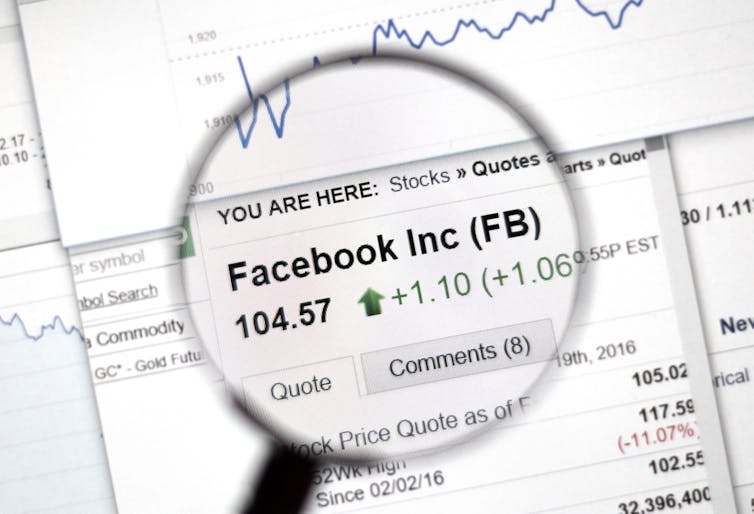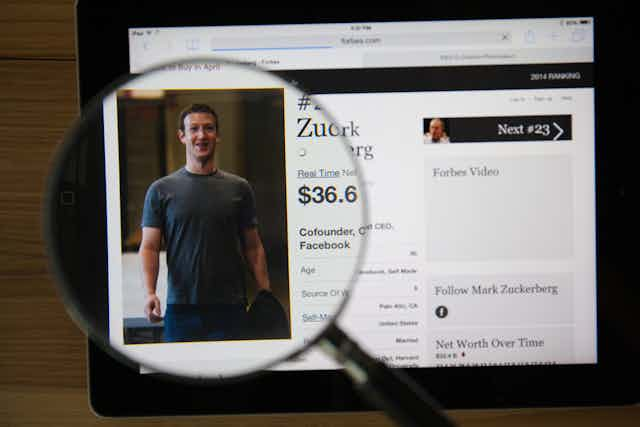Mark Zuckerberg, the 32-year-old multi-billionaire co-founder and CEO of Facebook has published his manifesto for the future. It’s a comprehensive vision, running at nearly 6,000 words – and the political and media elites have been poring over every word.
This epic, sprawling treatise begins with Zuckerberg’s writing of Facebook’s continuing journey to connect the world. In times like these, he stated, the most important thing that Facebook could do is to “develop the social infrastructure – to give people the power to build a global community that works for all of us”.
It’s a grandiose declaration of Facebook’s intent – and has received a decidedly mixed reaction. In The Times, technology editor Mark Bridge wrote that this represents Zuckerberg seeking “world leader status”. It’s a vision in which his social media company becomes the primary conduit between citizens and politicians. Facebook can facilitate civic engagement, Zuckerberg argues – it can help people to register to vote and become the space where direct dialogue between those who govern and those who are governed can take place.
Writing in The Observer, Carole Cadwalladr asked readers to imagine that instead of this manifesto being written by the “a freckled, fresh-faced young man” from White Plains, New York, it was penned by a gun-loving, bull mastiff-owning Russian named Misha. This “template for Facebook’s role in a new world order” involved:
… a supranational power that exists above and beyond the nation state. A digital interface between you and everything else: your friends, the news, the world. The overarching aim, it seems, is to make Facebook utterly central to people’s lives.
As if it isn’t already. According to social media statistics for 2016, 60% of the UK’s population has an account while globally its daily active users number 1.23 billion. More than 350m photographs are uploaded each day and users generate 4m likes per minute. As the (newish) old joke goes: beware a prolonged outage on Facebook, the streets will be full of desperate people holding up snaps of their children begging passers-by to like them.
Game changer
Joking aside, the impact of Facebook has been phenomenal. In just 13 years, as political reporter Jessica Elgot wrote in The Guardian, the platform has transformed personal relationships, the way we consume news, and our attitudes towards individual and collective privacy. It is certainly curious how indifferent we have become to this massive company collecting our personal data to sell on to advertisers.
Think about it: a substantial number of Facebook users post material on a regular basis which allows brands to access the information upon which they can build individual customer profiles. It’s a treasure trove of both fixed and changeable knowledge. Name, age, date, marital status, places visited, places lived – the “like” button can track internet activity beyond the pages of Facebook itself.
As the MIT Technology Review states, Facebook has collected the most extensive data set ever assembled on human social behaviour. And none of this has been clandestine. Facebook’s statement on advertising reads:
We believe that more personalised social advertising complements the ways that people use Facebook every day – to discover, share and connect with the people and the world around them.
In exchange for the free use of the site, users ultimately allow their every activity to be tracked.
Advertising is where the company makes a staggering amount of money. In 2016, total revenues rose to US$8.81bn (£7bn) from $5.84bn in 2015. The major concern, as growth targets are obliterated, is finding more space to place ads in the news feed.
Money tree
You’d expect the media to take a dim view of Zuckerberg’s ambitions. Apart from the fact that newspapers have long seen themselves as the space where democratic discourse takes place, Facebook’s growth continues to have a profound effect on their fortunes. This is because the advertising money upon which the survival of so many outlets depends is now going to Google and Facebook. The Financial Times reported in June 2016 that the two companies combined accounted for 75% of new online ad spending in 2015. In the US, 85 cents of every new dollar spent on digital went to Google and Facebook in the first quarter of 2016.

In effect Facebook has become, despite Zuckerberg’s protestations that it is a “tech company”, the world’s biggest media operation – distributing constant streams of information and millions of stories on an hourly basis. One of the most regular complaints is that for Facebook, it’s not the truth of the stories that count, but how many clicks it delivers.
To be fair, the company appears to be trying to take some responsibility for doing something about the number of “fake news” stories that find their way onto people’s news feeds. In December 2016, Facebook announced that would be employing factcheckers to root out false stories if enough people complained. Zuckerberg wrote:
While we don’t write the news stories you read and share, we also recognise we’re more than just a distributor of news. We’re a new kind of platform for public discourse – and that means we have a new kind of responsibility to enable people to have the most meaningful conversations, and to build a space where people can be informed.
This is all very well, but it’s hard to get away from the fact that Facebook’s main consideration is clearly commercial. In its main leader column a few days after Zuckerberg published his manifesto, The Times newspaper had this to say:
It is difficult to resist the impression that Mr Zuckerberg is more concerned with protecting Facebook’s reputation and its market share than in spreading a message suffused with hope and light.
If Zuckerberg wants to paint himself as “an authentic social thinker”, the article concluded, he might start by having Facebook pay its fair share of tax. And what Zuckerberg failed to address is that while social media companies such as his hoover up 85% of digital advertising revenue, who is going to pay for the news his platform distributes? Because real news is a lot more expensive than the fake variety.

